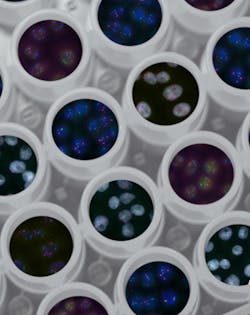In a recent study published in The Journal of Clinical Endocrinology & Metabolism, a team at the University of Michigan explored the association between genetic variants throughout the human genome and liver attenuation in over 15,000 individuals across multiple populations.
The team found one variant in a noncoding region of genome that significantly increased liver attenuation.
Yue Chen, PhD, a lead author of the study and a research scientist at the University of Michigan, noted that by “using CRISPR-Cas9, we were able to create a small deletion that encompassed the area where the genetic variant lay in a human liver cell line. This showed us that this change results in an increased glycogen accumulation to create a cell line model of the corresponding human disease.”
The team also found that this noncoding variant causally promotes all aspects of human metabolic syndrome in two large patient groups, including the Michigan Genomics Initiative.
According to their research, the variant promotes an increase in body mass index, waist circumference, the risk of developing diabetes, blood pressure and serum triglycerides. It also leads to a decrease in the serum high-density lipoprotein, or HDL, cholesterol.
“Results from our study would suggest that the possible underlying cause of both low HDL and metabolic syndrome could be tissue glycogen accumulation,” said Elizabeth Speliotes, MD, PhD, MPH, Gastroenterologist and Associate Professor of Internal Medicine at Michigan Medicine. “By finding pharmacologic ways to decrease the tissue storage of glycogen, we may be able to treat individuals with metabolic syndrome.”





